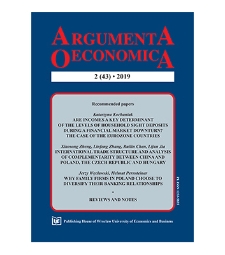Lower Silesian Digital Library contains 110 274 digital objects
Object
Title: Mental accounting in the context of savings and credit decisions. Evidence from Poland
Creator:
Swacha-Lech, Magdalena ; Solarz, Małgorzata
Description:
Argumenta Oeconomica, 2019, Nr 2 (43), s. 351-384
Abstrakt:
Publisher:
Wydawnictwo Uniwersytetu Ekonomicznego we Wrocławiu
Place of publication:
Date:
Resource Type:
Resource Identifier:
doi:10.15611/aoe.2019.2.15 ; oai:dbc.wroc.pl:73324
Language:
Relation:
Argumenta Oeconomica, 2019, Nr 2 (43)
Rights:
Wszystkie prawa zastrzeżone (Copyright)
Access Rights:
Dla wszystkich w zakresie dozwolonego użytku
Location:
Group publication title:
Object collections:
- Dolnośląska Biblioteka Cyfrowa > Uczestnicy Konsorcjum > 04. Uniwersytet Ekonomiczny we Wrocławiu > Czasopisma wydawane przez Wydawnictwo UEW > Argumenta Oeconomica
- Dolnośląska Biblioteka Cyfrowa > Zasoby > 2. Czasopisma > Czasopisma współczesne
Last modified:
May 26, 2022
In our library since:
Nov 15, 2019
Number of object content hits:
1 732
All available object's versions:
https://dlibra.kdm.wcss.pl/publication/141949
Show description in RDF format:
Show description in OAI-PMH format:
| Edition name | Date |
|---|---|
| Mental accounting in the context of savings and credit decisions. Evidence from Poland | May 26, 2022 |
Objects Similar
Solarz, Małgorzata Swacha-Lech, Magdalena
Solarz, Małgorzata Swacha-Lech, Magdalena
Swacha-Lech, Magdalena
Swacha-Lech, Magdalena
Swacha-Lech, Magdalena
Swacha-Lech, Magdalena
Swacha-Lech, Magdalena
























